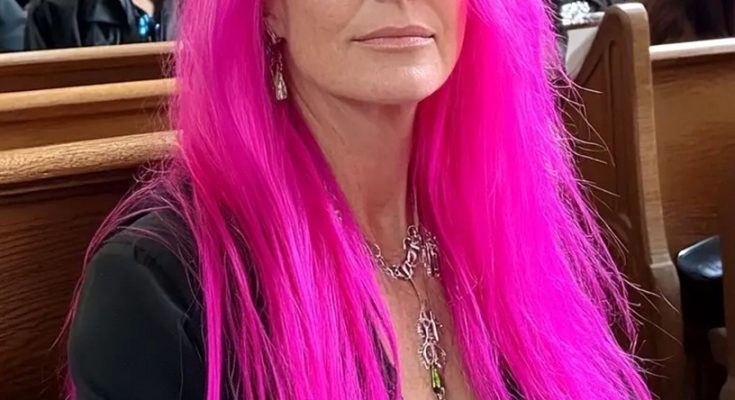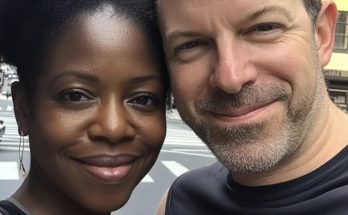I tried to focus on the sermon, but the vibrant color of her hair kept pulling my attention away. It wasn’t a subtle or soft pastel pink—it was loud, neon, the kind that demands a second look. I grew up in an era where going to church meant dressing modestly, where muted tones and simple attire were considered signs of respect. So, I found myself wondering, is it wrong that I feel this way? Does having hair that bright really cross a line when it comes to showing respect in a house of worship?
Once the service ended, I saw the woman standing outside, chatting with some other attendees. I hesitated for a moment, torn between my desire to let it go and my urge to say something. Finally, my curiosity—and my concern—won. I approached her, intending to be as polite and gentle as possible.
“Excuse me,” I said carefully, trying to choose my words well, “I couldn’t help but notice your hair. I just wanted to mention that such bright colors might not be appropriate for church.”
Her eyes widened at my comment. For a moment, I thought she might explain her choice or even apologize. Instead, her response was far from what I expected.
“Well, I don’t think it’s any of your business,” she replied sharply, her slight smile more biting than friendly. “I come to church to pray, not to be judged for how I look.”
I was taken aback. Her bluntness caught me off guard, and I found myself at a loss for words. I hadn’t intended to make her feel judged; my goal was to express what I thought was an important matter of respect for the church. But now, I couldn’t help but feel conflicted. Had I overstepped by speaking up?
This situation has been on my mind ever since. I’ve always believed that certain standards should be upheld in how we present ourselves, especially in a place as sacred as a church. To me, it’s not about suppressing individuality—people should be free to be themselves. But when it comes to a sacred space, I think it’s important to honor that space by presenting ourselves in a manner that reflects respect and humility. Church, for me, isn’t the place for anything too attention-grabbing. It’s about coming together in humility, a place where the focus is on faith and not on appearances.
However, now I can’t help but question if I was wrong. Perhaps I’m being old-fashioned, and my perception of what’s appropriate is out of sync with the times. But I still feel that there’s value in maintaining a sense of reverence for certain traditions and spaces. Shouldn’t we treat places like churches differently from our everyday environments? Isn’t it reasonable to ask that people present themselves in a way that doesn’t draw unnecessary attention?
I realize times have changed. What was once considered respectful attire is no longer the standard. Self-expression, including how we dress and style our hair, is celebrated more than ever before. And I’m not necessarily against that—I think everyone should feel free to express themselves. But I also wonder, is there a line that we’re starting to blur? Are there still places and moments where modesty and reverence should come first?
I’ve been reflecting on whether I was wrong to say anything at all. My intent wasn’t to offend, but maybe it’s not my place to comment on how others choose to present themselves. Perhaps the woman was right—her reasons for being at church were valid, and her appearance shouldn’t be anyone’s concern but her own.
I really want to hear from others about this. Am I alone in thinking that certain standards should still apply when we enter a place of worship? Have others felt similarly conflicted, or is this something that I need to come to terms with on my own? Maybe it’s time for me to adjust my perspective and accept that the way people express themselves, even in church, is part of the broader cultural shift we’re all experiencing.
I’d genuinely love to hear your thoughts on this. Was I out of line for saying something? Is there still room for standards when it comes to showing respect in church, or should we be embracing this era of unrestricted self-expression in all areas of our lives, including sacred spaces? Please let me know what you think—maybe your perspective will help me understand this better.



